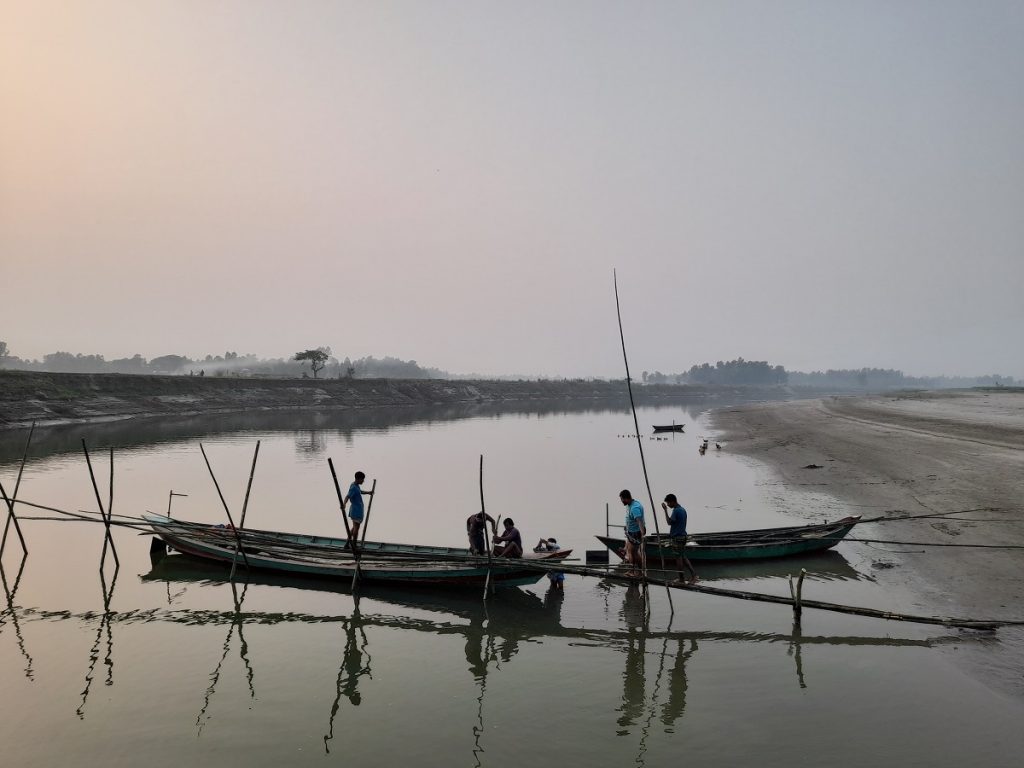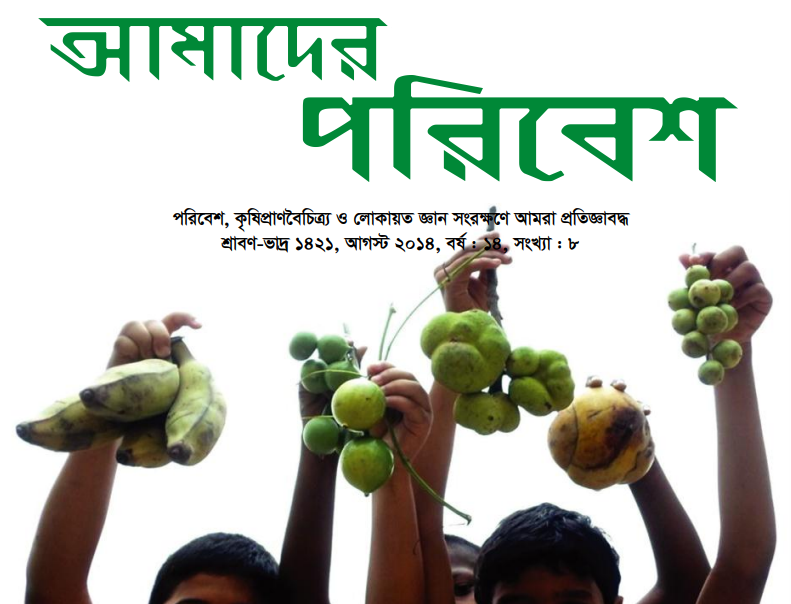Roni Khan from Netrakona
If you walk through or visit the Kalmakanda border in Netrakona, you may witness a new kind of ‘water struggle’ of the indigenous Garo communities. They have to collect water from the available stream, canals and rivers walking a long distance. The water harvesting technique of these communities might remind you of the Maidan of Karbala. However, water shortage and crisis is felt almost in every parts of Bangladesh particularly during the dry season. People from the water stress areas are crying for water for daily consumption, for crops and for their livestock. Many lands remain fallow due to the scarcity of water while some conflicts take places associated with water. Thus from Khulna to Sunamganj, Koira to Kalmakanda water-logged people crying for food and water is a daily picture today! Communities in Kalmakanda of Netraona suffer water crisis during the winter and sometimes during summer. On the other hand, during Baisakh (April-May), the people of Haor region are in tension fearing of the advance floods from the upstream! If the floods occur they cannot harvest their crops pushing them to hardship and poverty. When they need the water most they cannot get and when they don’t need much water they get it abundantly!

On the other hand, when someone presses a switch or opens a branch of the refrigerator and drinks a mouthful of water easily, some in the water crisis may have to walk a kilometer to collect a pitcher of water from the stream, canal and other water sources to satisfy their thirtst! There is also a picture which we see in the newspapers and other media that someone buys a litre of drinking water for two and a half lakh taka, while some farmers and people in the water stress area committed suicide due to they cannot afford to buy water! To think about this disparity in access to water, you can look at the Water Act 2013 where it is said – “all rights to water shall be vested in the state.’ At the same time, you can look at the National Water Policy 1999. Where its purpose is stated, ‘ensuring access to water for all in the society, including the poor and disadvantaged sections and paying attention to the special needs of women and children’. The SDG number 6 also emphasizes on ‘Water and Sanitation’.
When the special importance of ‘water’ has been talked about everywhere from the United Nations to the local government – just then the water struggle of the inhabitants of the coastal region or the Haor region will make you think anew. At the same time you will be forced to think, it is not possible to ensure easy availability of water for all on state responsibility alone. That’s why you and all of us have to do what we have to do. The United Nations has therefore included this issue in the 2023 World Water Day campaign. Water is thought to be the most important issue for the third world war, except for the war between Ukraine and Russia.
The struggle for water is the truest nature of the world. The world’s cities-villages, culture-rituals-ceremony, way of life, abundance-poorness are all built around water. This relationship of life with water is primal and original. However, free market economics has poisoned life’s relationship with water, like everything else in the world. The marketing of so-called ‘pure’ water in bio-hazardous plastic bottles is making marginal people even more marginalised. When the rich’s self-established ‘celebrities’ advertise ‘pure’ water and convince people of the water purification process, we naturally wonder who has polluted nature’s water? It is to mention that the rivers and streams of Bangladesh are becoming a waste of plastic-polyethylene. Who markets the plastic polyethylene? Marginalized people who are struggling for water are certainly not responsible for that. Those who are doing business by polluting the river-water-air-soil and capitalizing on that pollution are the main culprits!
The United Nations water agency recognizes that the world is now in a water ‘crisis’. We all have to work from our own place to deal with that ‘crisis’. We have only one world and in order to sustain and protect this world we all need to be sensitive to the extraction and use of natural resources. We have to remember that our children will also live in this world. We have to make the world habitable for them too. Therefore, we should be more careful in using water. We should change our habit regarding using water, we should stop wasting water and commercialized water. We also should take initiatives to save and protect natural water sources from our own perspective.
Translated by Silvanus Lamin

